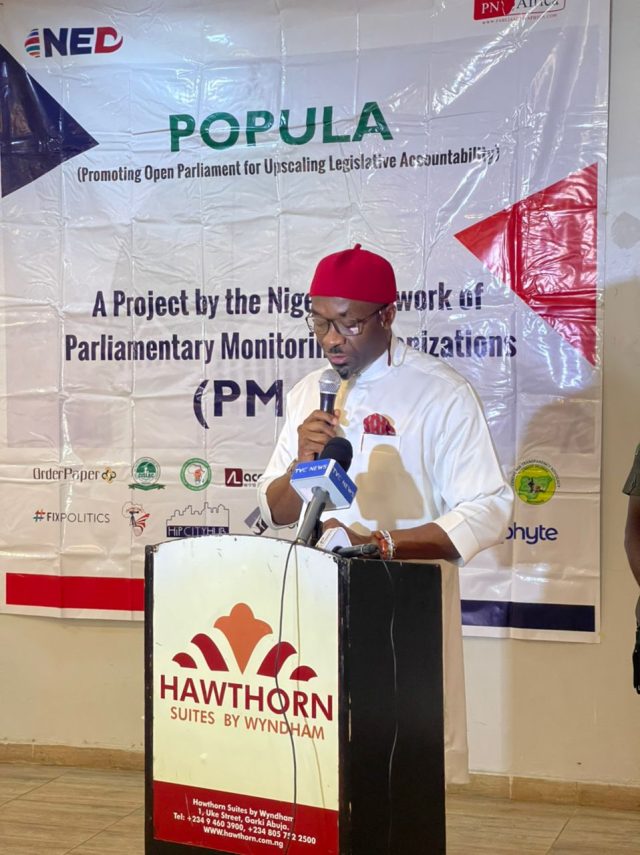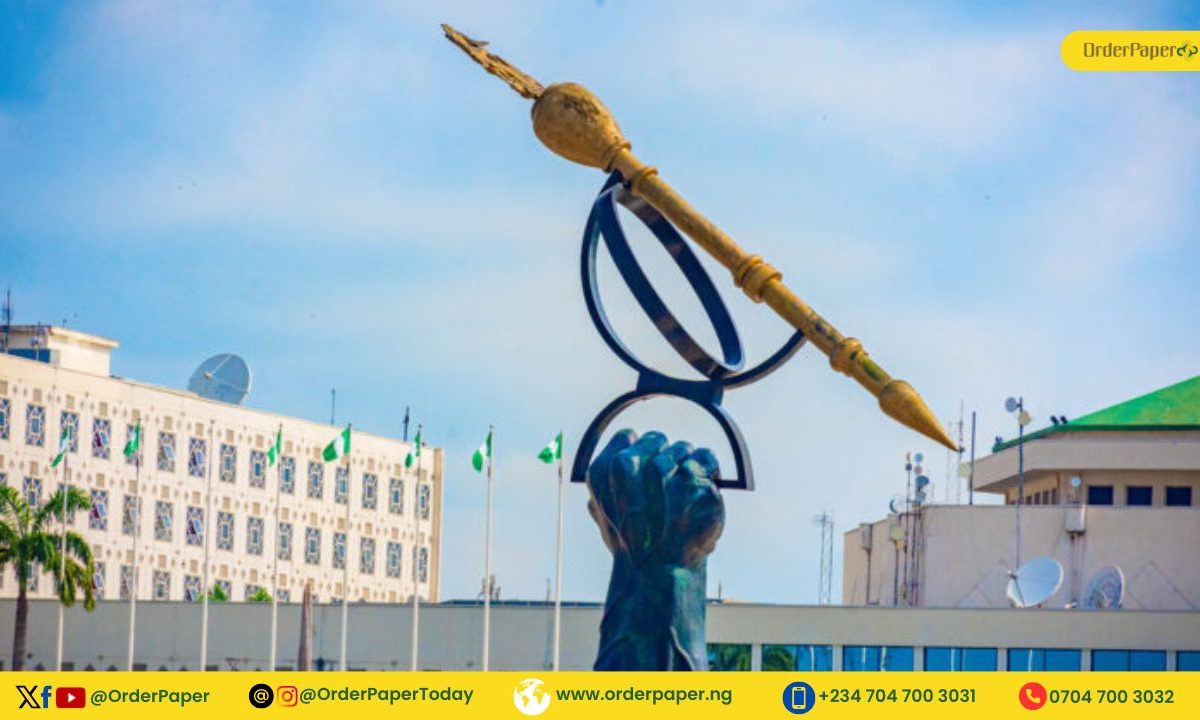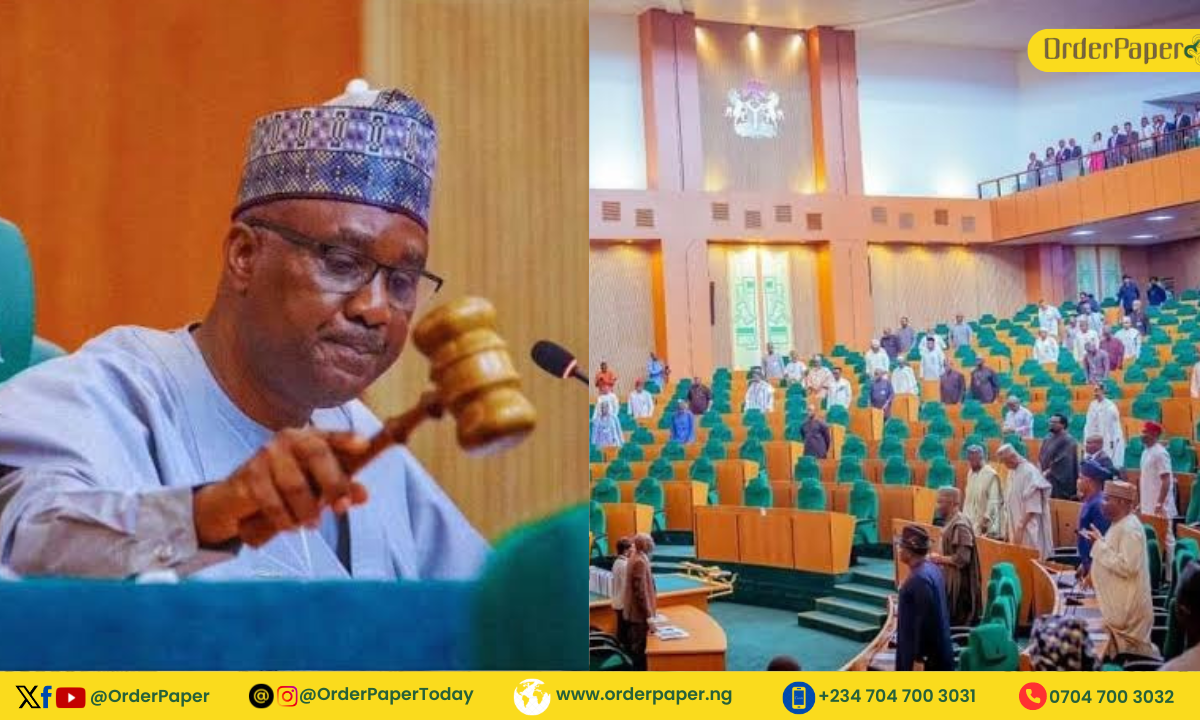The Deputy Speaker said the 10th Assembly will leverage technology to streamline communication, facilitate access to information, and enable citizens’ engagement with parliament.

The Deputy Speaker of the House of Representatives, Rep. Benjamin Okezie Kalu, has emphasised the need for the National Assembly to be accessible, transparent and accountable to ensure a thriving democracy.
Kalu stressed this, while delivering a goodwill message at a National Dialogue on Open Parliament organised by the Nigeria Network of Parliamentary Monitoring Organisations (PMOs), on Wednesday, in Abuja.
The lawmaker also noted the important initiatives the 10th Assembly has set in place to guarantee openness, civic engagement, and public accountability in the legislative processes.
He said, “I firmly believe that a parliament that is accessible, transparent, and accountable is the cornerstone of a thriving democracy. As the Deputy Speaker of the House of Representatives, I am personally committed to leading the way for innovation and transformation in the realm of participatory governance and open parliament.”
The deputy speaker, who lauded the initiative said, “This dialogue, an integral part of the Promoting Up scaling Legislative Accountability (POPULA) Project, marks a significant stride towards fostering transparency, civic participation, and public accountability in our legislative processes.
READ ALSO: World Parliament Day: OrderPaper holds high-level discourse on Nigeria’s climate action
“As we deliberate on the critical intersections of transparency, civic participation, and public accountability, let me share with you some of the cogent plans that the 10th Assembly has in store to further these ideals.
Firstly, we recognise that to achieve the lofty goals set by the Open Parliament Index (OPI), we must prioritise the standards of the Open Government Partnership (OGP), the Principles of Parliamentary Openness, and the Inter-Parliamentary Union’s (IPU) indicators for democratic parliaments. The adoption of these benchmarks underscores our determination to create a parliament that is not only accessible but also responsive to the needs and aspirations of our constituents.
Secondly, the 10th Assembly is committed to embracing technology and innovation to enhance transparency and participation. We understand that in an era defined by rapid technological advancements, an open parliament must utilize digital tools to bridge the gap between citizens and their representatives.”
According to him, the 10th Assembly is resolute in its pursuit of leveraging technology to streamline communication, facilitate access to information, and enable meaningful engagement between citizens and their elected officials.
Participatory governance is not a mere buzzword for us; it is the cornerstone of our legislative agenda. We intend to establish mechanisms that enable citizens to actively participate in the legislative process, ensuring their voices are heard and their concerns addressed. Through randomized and hybrid town hall meetings which you will see from my office starting next year, online platforms, and collaborative policy discussions which will commence from my office later this year in the form of a policy dialogue event, we aim to create an inclusive space where every citizen’s opinion counts.”
READ ALSO: Hall of Fame: Can anything good come out of Nigeria’s Parliament?
He further assured that the National Assembly will support the dialogue’s objectives and aspirations. It is with this conviction that I pledge to champion initiatives that promote openness, transparency, and civic engagement.
“The outcomes of our deliberations today will not remain confined within these walls. They will be presented to the leadership of the National Assembly for possible mainstreaming into our legislative agenda. This dialogue signifies a crucial step towards achieving a government that is truly of the people, by the people, and for the people,” the Deputy Speaker submitted.
Meanwhile, the Executive Director, OrderPaper Advocacy Initiative, Oke Epia, in his opening remarks, noted that the gathering is an avenue to exchange ideas on activities around Nigeria’s Federal legislature.
According to him, the PMOs intend to set up an agenda as lawmakers prepare for the National Assembly.
“The 10th National Assembly is just two months in office, and we believe it is important to not only set an agenda for National Assembly but it is also important to sensitise the citizens on the misconceptions about the legislature.
When the National Assembly does excellent work we should not be shy to commend them. We want to see the National Assembly open up to the citizens and open up to organized monitoring and evaluation process,” he added.
READ ALSO: OrderPaper’s Epia, Ndidi Nwuneli, Others speak at Naija Policy Hackathon
The National Dialogue on the Open Parliament Index (OPI) themed: “Mainstreaming Open Parliament into the 10th Assembly Legislative Agenda,” was convened under the POPULA (Promoting Open Parliament for Upscaling Legislative Accountability) Project with the Nigeria Network of Parliamentary Monitoring Organisations (PMOs).
Members of the PMOs include OrderPaper Advocacy Initiative, Nigeria’s foremost independent parliamentary monitoring organisation, Civil Society Legislative Advocacy Centre (CISLAC), African Centre for Leadership, Strategy and Development (Centre LSD), Accountability Lab and Wewe Network Afrique.
Others are the Africa Centre for Media and Information Literacy (AFRICMIL), HipCity Innovation Centre, Nigeria Caucus of the African Parliamentary Press Network (APPN), Social Action, Youth Alive Foundation (YAF), HallowMace Foundation, Paradigm Leadership Support Initiative (PLSI), Centre for Transparency Advocacy (CTA), Dataphyte and FixPolitics Initiative.



